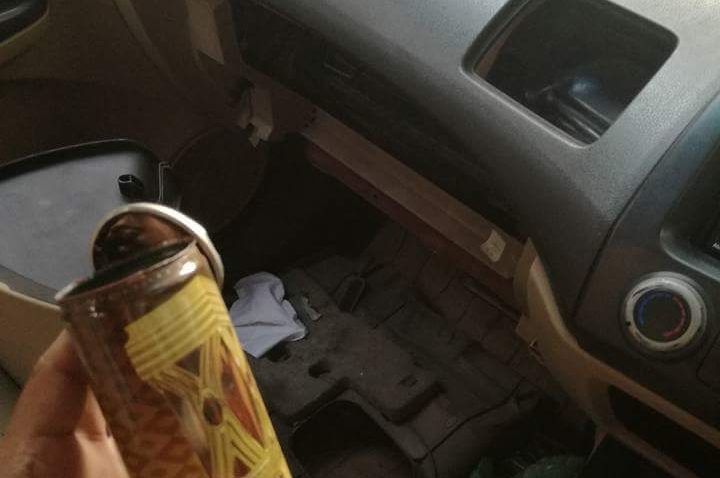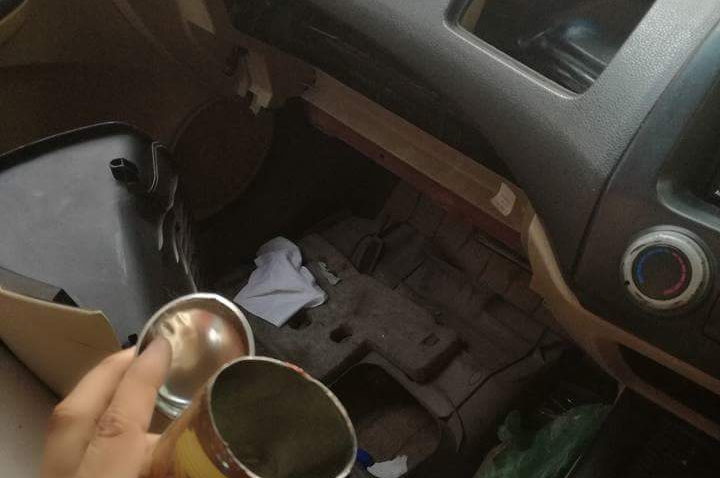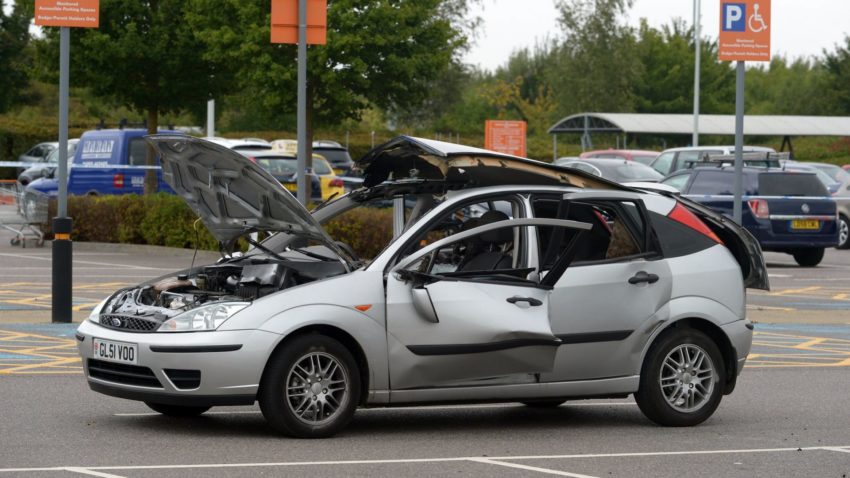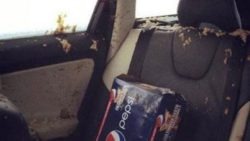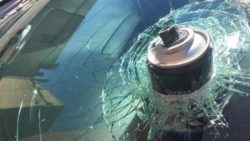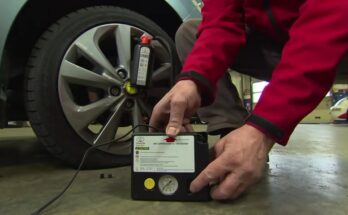Keeping a pressurized container in your car, such as air fresheners, aerosols, hair spray/ body sprays etc especially during these extremely hot summers can be very dangerous. Never leave any pressurized container in your car particularly if you have to leave your car parked under direct sunlight.
Related: How Hot Can the Interior of Your Car Get and How Quickly?
When parked under sunlight, the temperature inside the car due to trapped air, can be twice as much as compared to outside temperature. According to a research, when temperatures outside range from 27oC to 37oC, the temperature inside a car parked in direct sunlight can quickly climb up to 70oC, which is lethal. Although most aerosol containers are designed to sustain temperatures up to 50oC, but since the temperature inside the car can exceed to much higher limits, it’s always better to be careful & avoid leaving any such container in your car.
As said earlier, these pressurized containers are designed to sustain a certain temperature. You should never throw such a container onto fire or leave it under direct sunlight – even if it is empty. This is because the pressure will build so up so much that the can will burst and can explode too if there is a flame nearby.
Why does this happen?
The particles in a gas are always moving. They bump into the walls creating a pressure. When a gas is heated, its particles speed up. The faster particles bump into the container walls more often. Each collision is harder because the particles are moving faster.
The pressure of a gas increases if the temperature increases, because the pressure is always proportional to temperature. If we double the absolute temperature, the pressure will double, if we triple the absolute temperature, the pressure will triple and so on.
Related: Getting Your Vehicle Ready For Summer
The increase in gas pressure is not enough on its own to be dangerous. The pressure further increases because more of the liquefied propellant turns into a gas. You can see this at home when a saucepan of water starts to boil. The water turns into steam and produces a huge increase in pressure – enough to lift up the saucepan lid.
A recent example was posted on social media a couple of days ago when an air freshener can burst into the car, luckily when no one was around. The explosion badly damaged the dashboard, glove box, air vents and other interior components of the vehicle. According to the owner, the can was kept in the glove box in a car which was parked under direct sunlight. Due to excessive heat trapped inside the vehicle the can exploded, and damaged good part of the vehicle’s interior.
In September last year, an air freshener caused a car to explode in Essex, UK. Dramatic pictures show the doors, windscreen and roof were completely blown out following a “very loud bang” inside the silver colored Ford Focus. A man who was rescued from the hatchback was taken to hospital with only minor injuries. According to investigation, the explosion happened after a build-up of gases from an air freshener (leakage) was accidentally ignited by a cigarette.
Another incident from UK was reported where the driver found the Pepsi cans he left in the backseat of the car blown up. This shows that even soda cans have the tendency to explode if kept in a (hot) car for long. The last picture shows a hair spray container that blew off due to excessive heat thus severely damaging the windscreen of the car.
Related: How to Prevent Cars From Overheating in Traffic Jams
It’s always better to take precautionary measures to avoid anything that may lead to serious troubles for you and your loved ones. Stay safe, always be sure that no pressurized container is left in your car.

A computer animation professional with over 23 years of industry experience having served in leading organizations, TV channels & production facilities in Pakistan. An avid car enthusiast and petrolhead with an affection to deliver quality content to help shape opinions. Formerly written for PakWheels as well as major publications including Dawn. Founder of CarSpiritPK.com

